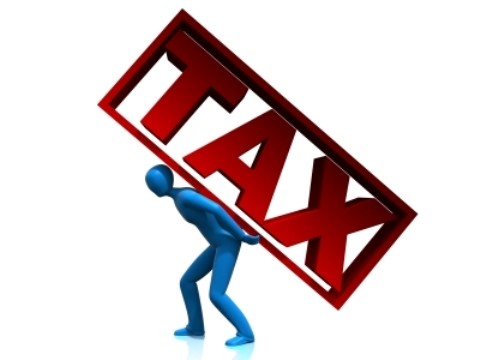 Did you know that as T/E School District homeowners we are in line for the largest yearly tax increase for decades!
Did you know that as T/E School District homeowners we are in line for the largest yearly tax increase for decades!
As it now stands, our school board has targeted us for a 6% tax increase! In December, as the preliminary budget for 2019-20 was in the early stages of preparation, the discussion indicated a possible tax increase of 6.1% but the Board assured us that they would work to bring down the increase. Three plus months later, the projected tax increase remains at 6% although at last night’s school board meeting, we were again told that the board is working to bring the number down.
The question is “why” the proposed staggering increase; the largest in decades! And to be clear, the proposed tax increase is not based on the Conestoga HS expansion plan – that capital project will be funded separately through new bond initiatives. Which brings me back to the question, WHY this looming large tax increase?
As we learned from Ray Clarke at the school board meeting last night, there appears to be an explanation (and suggested solution) for the proposed tax increase. And should the school board act on Mr. Clarke’s findings, it could reduce the proposed increase significantly. Taxpayers could see the proposed tax increase lowered by as much as 50%.
Mr. Clarke opened his remarks with the following:
- There is ample public evidence that the allowable 6% tax increase presented in the preliminary budget is in error due to an accounting timing issue
- The actual allowable tax increase is, most likely, much less
- It would be in the best interests of the public, the Board and the Administration to address this issue in a prompt, transparent manner
( Click here to read complete Ray Clarke Special Ed statement)
According to information received at the District’s Finance Committee meeting of March 11, the accounting problem stems from unpaid invoice(s) of $1 million+ that were received in the 2016-17 year. The invoice(s) from the Chester County Intermediate Unit (CCIU) were paid, and more importantly accounted for, during the 2017-18 year.
The Special Ed exception for tax purposes is based on increases in annual expenditures; so getting the year correct is extremely important. By moving the Special Ed expense from 2016-17 to the following year (albeit by error/accident) causes a false reading by inaccurately inflating the expenses in 2017-18.
After Mr. Clarke read his statement, Neal Culligan continued with remarks imploring the board to seek further review before imposing a 6% tax increase. I struggled to understand how the District can “miss” paying over a million dollars in invoice(s) and asked the Board for an explanation – how did this happen, whom was responsible and when did they find out? My questions were unanswered.
Mr. Clarke contacted Pennsylvania Department of Education and received copies of the District’s 2019-20 “Special Ed Expenditures” and signed “Summary of Referendum Expenditures filings. And although the District has known about the accounting “timing” issue since sometime before the March 11th Finance Committee meeting, the State has not been notified or the filings correctly updated.
As I stated at the meeting, we all make mistakes – but it’s all about owning your mistake when it’s identified, correcting it and moving on. Shouldn’t that apply to the School Board and the Administration – they knew there was an accounting “timing” issue; an error that could impact the proposed tax increase. Who is responsible and where is the accountability? Why don’t they do something?
Sadly, the takeaway from some School Board members re the accounting “timing” issue was simply to push back, become defensive and claim that they have been completely transparent. What’s that line from Hamlet, “The lady doth protest too much, methinks”?
So what does the man with the District’s oversight of the financials, Business Manager Art McDonnell, have to say on this accounting matter? Remarkably, he disregards the analysis by Mr. Clarke, indicating that the “timing” of the Special Ed expenses and subsequent payment was inconsequential and; therefore, making no difference in the end result.
When called upon to comment, McDonnell further stated that if anything, the taxpayers would simply have paid a larger tax increase last year if the Special Ed expense and payment had not been delayed to CCIU.
This is crazy talk – and certainly doesn’t sound like sound accounting practice! It seems to me that if the District erroneously missed Special Ed expenses and a million dollar plus payment to CCIU one year, plays catch up the next year, that this practice skews the resulting financials of those effected years and for future years.
As a very wise former school board director stated, “The legislature passed Act 1 of 2006 specifically to limit a school board’s power to tax the electorate unchecked.” Our school board knew about this accounting error at the March 11th Finance Committee meeting and residents questioned them about the issue at last night’s School Board meeting – are they not required to do the right thing? At a minimum, this should require immediate financial review from an independent source and then take necessary action as required, including notifying the Pennsylvania Department of Education..
We elected our school board directors to provide oversight; with independent thought and transparency.
 How many of you know that there is a special election on November 6 to fill an at-large seat on Tredyffrin’s Board of Supervisors? And that for the first time in township history,
How many of you know that there is a special election on November 6 to fill an at-large seat on Tredyffrin’s Board of Supervisors? And that for the first time in township history, 